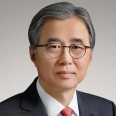*This is an opinion expressed in the Chosun Ilbo Op-ed on August 8, 2022.
It is widely accepted in the international community that nuclear weapons can be deterred only by nuclear weapons; deterrence can be achieved through the ‘balance of terror.’ During the Cold War, the United States had more than 30,000 nuclear weapons and the Soviet Union had over 40,000, enough to destroy the earth dozens of times. The reason why such an enormous number of nuclear weapons was needed was because of the strategy of Mutually Assured Destruction (MAD). As its acronym suggests, MAD can be understood as being “mad,” since it calls for reciprocating an adversary’s nuclear attacks with nuclear attacks, resulting in a mutual annihilation-“if I die, then you die, too.” Since MAD was a strategy of thinking ‘the Unthinkable,’ it supposedly caused American strategists considerable stress.
North Korea’s nuclear development defies common sense and is abnormal. To deal with an abnormal North Korea, we need to think of extraordinary responses, but we seem to be responding too gently. When Kim Jong Un threatened to “wipe out the Yoon Suk-yeol administration and his military” in his July speech, he was blatantly issuing nuclear threats against 50 million South Koreans. The North Korean regime has maintained the state of emergency mobilization over the past seven decades, while South Korea developed into a liberal democracy. Faced with the North Korean nuclear crisis, the South Korean government should explain the severity of the situation to its people. At the same time, however, this should not undermine the daily lives of ordinary people, and the government should establish a stable response posture. As proposed in a joint study conducted by the Asan Institute for Policy Studies and RAND Corporation, a ‘Strategic Deterrence & Warfighting Group’ comprised of government officials and experts must be launched.
To counter the North Korean nuclear threat, it is necessary to redeploy some of 600 tactical nuclear weapons that were withdrawn from South Korea in 1991, and establish a proper defensive posture. It can start by terminating ‘the Three No’s’ over the deployment of Terminal High-Altitude Area Defense (THAAD). In October 2017, then the South Korean Foreign Minister Kang Kyung-wha announced the ‘THAAD Three No’s’ at Foreign Affairs and Unification Committee of the National Assembly: “South Korea would not consider deploying additional THAAD units; it would not participate in U.S.-led missile defense system; and it would not develop trilateral cooperation among South Korea, the United States, and Japan into a military alliance.” This was an irresponsible decision that abandoned our sovereign authority of national security. The Moon Jae-in administration noted that the ‘THAAD Three No’s’ was neither an agreement nor a promise to China but just a policy stance. Had that been the case, the Moon administration should have scrapped the ‘THAAD Three No’s’ and put in place a proper defensive response system to counter North Korean missile threats, which have been growing rapidly since 2019.
If China had given even a little consideration to South Korea’s circumstances, it should have accepted and supported South Korea’s decision to deploy THAAD as a minimum defensive measure. In a 2017 lecture titled, “The THAAD Issue in the History of Sino-North Korea Relations,” Shen Zhihua, a professor at Huadong Normal University, stated that “North Korea is China’s potential enemy and South Korea is China’s potential friend.” But China has openly sided with North Korea as U.S.-China relations turned from “cooperation and competition” to “competition and conflict” and their strategic rivalry deepened since the inauguration of President Trump. While President Trump and Chairman Kim Jong-Un met three times and exchanged 27 personal letters, China intensified its embrace of North Korea.
We need to stop deferring to China over the ‘THAAD Three No’s.’ So far this year, North Korea has conducted 21 missile and multiple rocket launcher tests and it recently threatened the possibility of using its nuclear weapons preemptively. This implies that South Korea can no longer be held back by the ‘THAAD Three No’s.’ We could consider terminating the ‘THAAD Three No’s’ gradually by implementing necessary measures in accordance with our security needs. It is necessary to normalize the THAAD deployment in Seongju, the full deployment of which has been delayed. We should strengthen the link between the U.S. and Korean missile defense system. To effectively counter North Korea’s various missile threats, South Korea needs to put in place a multi-layered missile defense system and, in particular, improve its detection and interception accuracy with the establishment of a real-time constant surveillance system by taking advantage of U.S. surveillance assets, including satellites. If necessary, we could officially declare that South Korea is no longer bound by the ‘THAAD Three No’s’ given North Korea’s repeated nuclear and missile threats. If North Korea conducts another nuclear or missile test in the future, it could constitute a just cause for renouncing the ‘THAAD Three No’s.’ Given China has failed to prevent North Korea from advancing its nuclear capabilities, its rationale for THAAD opposition is weakened.
Recently, President Xi Jinping said that “those who play with fire will eventually get burned.” Instead of trying to impose the ‘THAAD Three No’s’ on South Korea, China should sternly warn North Korea, which has played with fire for the past 16 years since its first nuclear test in 2006.
* The view expressed herein does not necessarily reflect the views of the Asan Institute for Policy Studies.

 Facebook
Facebook Twitter
Twitter